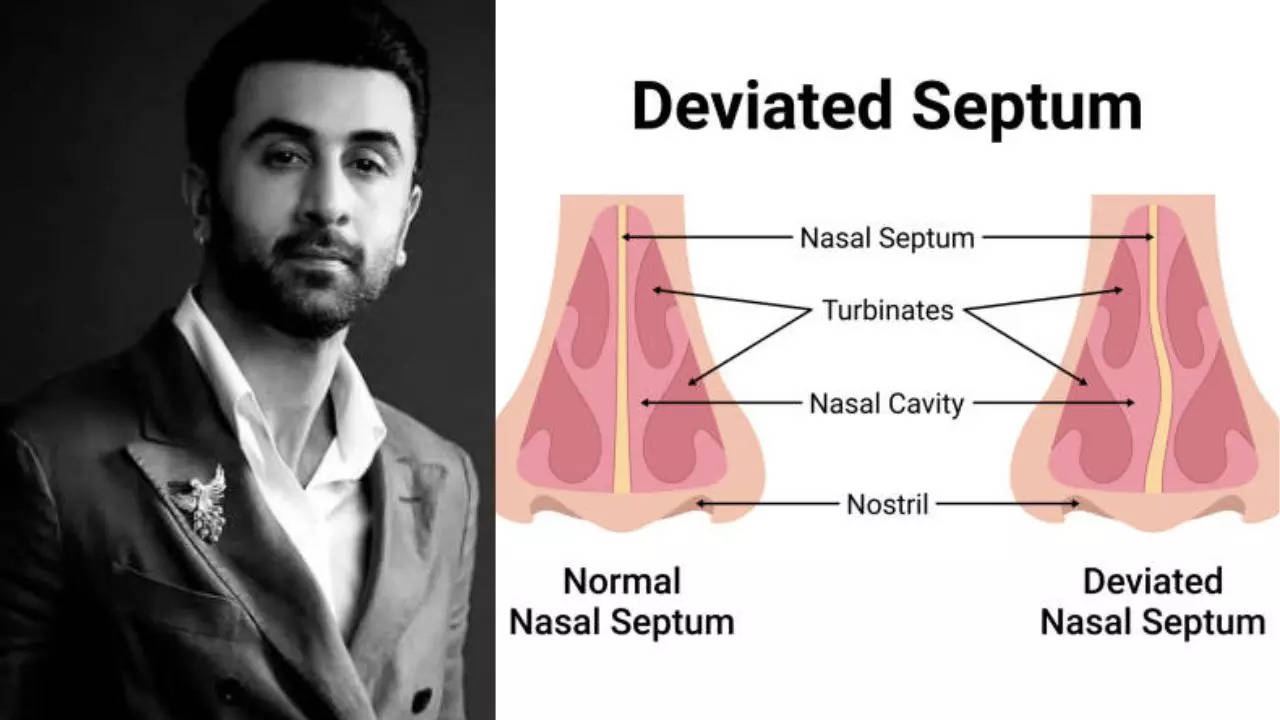-
news
-
Health
What does Ranbir Kapoor have a deviated septum? How does this condition affect breathing?

People who have a severely deviated septum may notice changes in the shape of their nose.
How does a deviated septum affect your health?
Signs and symptoms of deviated septum
- Difficulty breathing through one or both nostrils
- severe headache
- pain on face
- nasal congestion
- noisy breathing
- frequent nose bleeding
- chronic sinusitis
- Snoring
- sleep apnea
- Snoring
What causes deviated septum?
- playing contact sports
- car accidents
- Falls
- fight and assault
While some people are born with nasal septum deviation due to difficult delivery, this condition can also be the result of normal development. As your nose grows, your septum also grows and can sometimes bend to one side.
How can you self-diagnose a deviated septum?
- Tilt your head back and look in the mirror. If you notice that your nostrils appear uneven or different in shape, you may have a deviated septum.
- Use your finger and keep one of your nostrils closed. Then breathe and focus on the flow of air. If you are having difficulty breathing, you may have this condition.
Doctors say the test can be a helpful self-examination tool, but for a proper diagnosis, you should visit your doctor.
How can you treat this condition?
- nasal decongestant
- nasal steroid spray
- antihistamines
Additionally, a common surgery to treat this condition, known as septoplasty, can be performed to treat breathing troubles and frequent sinus issues. In this, the surgeon will reshape your septum, which involves adding or removing bone and cartilage. Typically, septoplasty is an outpatient procedure, and takes approximately 30-90 minutes to complete.


